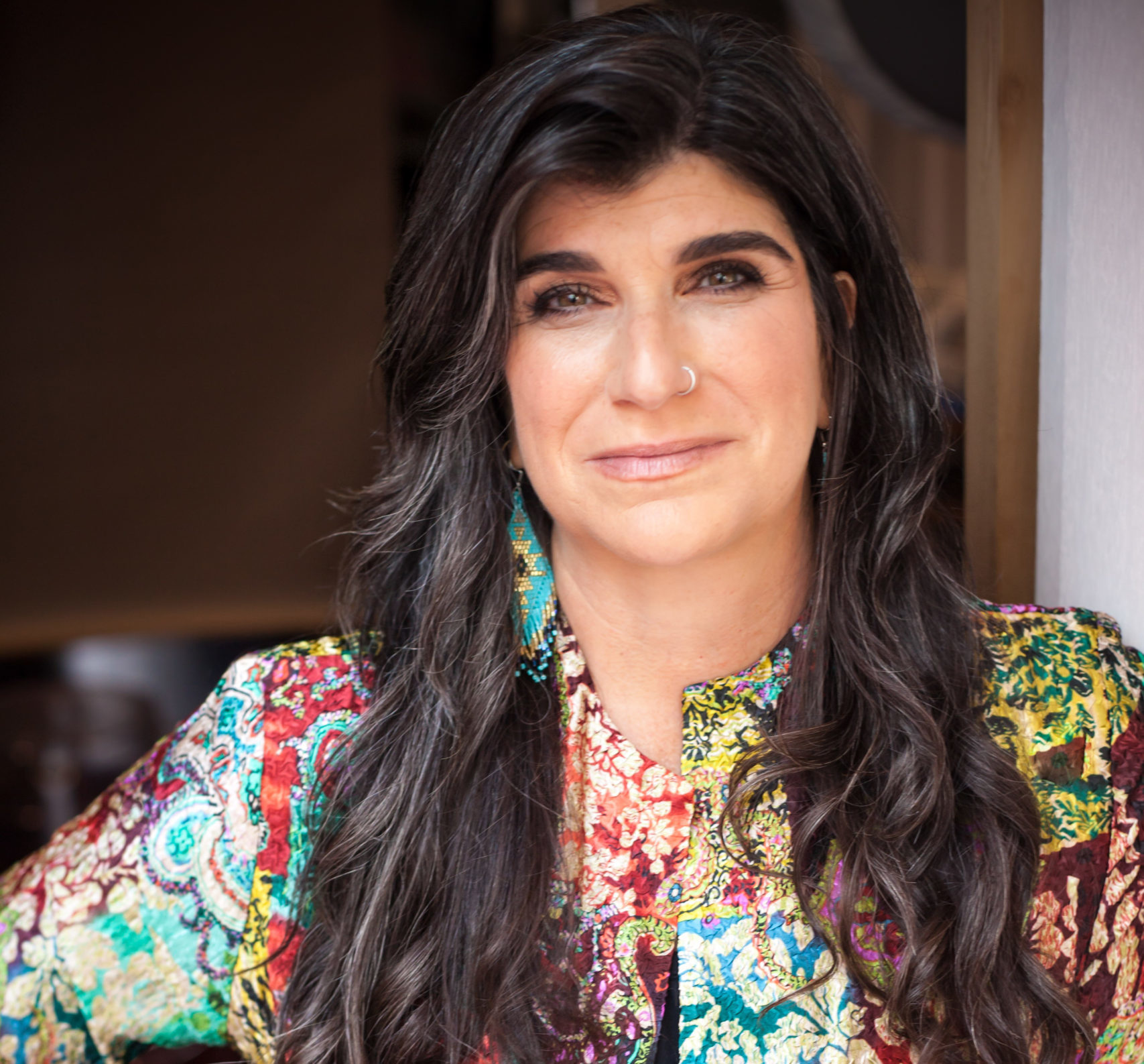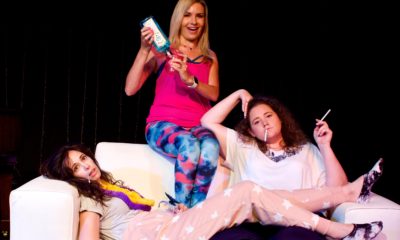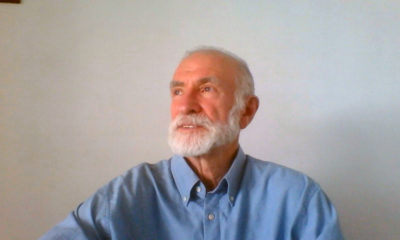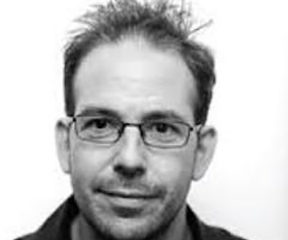
Question and Answer

Fedler throws the book at midlife
Published
2 years agoon
Acclaimed author and South African emigrant to Australia, Joanne Fedler, has brought out another book, Unbecoming. The SA Jewish Report catches up with her in South Africa to find out more.
Why did you write about a group of women in midlife who go out into the bush overnight to celebrate a friend’s 57th birthday?
Unbecoming is the third in the trilogy of books on motherhood which began with Secret Mother’s Business (2006), followed by The Reunion (2012). After I turned 50, I wanted to write a homage to midlife to explore menopause, the empty nest, and loss of libido and visibility, which most women dread and bemoan.
My experience has been so different – I’ve never felt more liberated now that the hard work of raising kids is over. I’ve become braver (I started open-water swimming a few years ago), am willing to take more risks, and have discovered the deepest love of my life – the ocean. Midlife is when we outgrow our ego, competitiveness, judgement of ourselves and others, and become custodians, elders with a deep responsibility to our children’s generation and to the earth.
Your writing pulls no punches, and reminds readers of the bare truth of this time of life, the aches and pains we experience. Was it based on personal experience?
All my books draw from my life experience – the ordinary stuff of being a mother, a woman, an immigrant. Writing is a way of wrestling to make meaning, universalised so readers see their lives reflected too. Motherhood, marriage, immigration, body image, and relationships are rich places to explore and question who we are as human beings. I try to get to the truth of my own experience, so I avoid romanticising, catastrophising, or stereotyping, and try to do justice to the complexity of women’s experiences.
Why is Unbecoming set in the wild, and is it an important aspect of the story?
I wanted to write a story that treats ordinary women in midlife as the heroes, and to disrupt the narrative of midlife as a downer. So, I had to take my characters out of their comfort zone, into nature to spend a night under the stars. In the wild, we are stripped bare. As part of the research for this book, I took a group of friends to a cave in the Blue Mountains for two nights. We made fires, chatted, and shared stories. One of the issues that came up was climate change and fear for our children’s futures. So nature felt like the perfect setting for Unbecoming as the women talk about change – in their bodies and relationships with partners and children.
Before you left South Africa, you were a women’s right’s lawyer for abused women and often their spokesperson. Why did you swap that for writing books?
When I emigrated to Australia, I had two law degrees and two kids under the age of four. I didn’t have the energy or desire to requalify as a lawyer. For a few years, I was a full-time mother. Writing was just a hobby. After my first book, The Dreamcloth (2005) was published, I landed a book deal to write about early motherhood, and never looked back. Writing helps me to continue to give voice to women’s experiences. My novel, Things Without A Name (2008), is about gender violence, and it has been recently optioned for a six-part TV mini-series.
What does South Africa mean to you now?
I was a reluctant immigrant – we left after a terrible incident of violence affected my family. Still, to be an immigrant means to live in a shadowy place of internal exile, missing people, places, and even the problems you leave behind.
I’ve just spent the past 10 weeks in South Africa. During this time, my mother passed away unexpectedly. South Africa is and will always be my first love. I will never outgrow the longing I have for it, nor do I want to – here is where I have laid my mother’s body to rest. But I’m also grateful for my life in Australia, my adopted home. It has given me the chance to know myself in new ways. I’ve been there for 20 years now. Being an immigrant is always to be partly in exile. Never fully gathered to oneself.
Your books aren’t fiction as such, they’re based on fact and seemingly real characters. How do those who recognise themselves in your books respond?
I’m fascinated by real human stories, especially the lives of ordinary women. I like to get a range of perspectives so that many women’s voices and experiences are represented in my books. But if I ever want to use someone’s story, I always ask permission and acknowledge them even though I fictionalise and disguise the sources.
What do you hope women will get from Unbecoming?
I hope they see their lives as the stuff of literature, and they become excited about the prospect of midlife. Ageing is a privilege and a responsibility. Being “invisible” is an underrated superpower. I feel giddy at the prospect of what lies ahead.
For some, hitting menopause is hell, for others, it’s simply a change in the time of their lives. What was it for you?
Menopause has been a great relief, a wonderful transition into elderhood. It brought heat, anger, clarity, and freedom. Midlife is more than just menopause. It’s a time of celebration which includes the relief that I didn’t die young and got my children to young adulthood. I had never experienced real freedom until now.
Has releasing this book in the age of COVID-19 had any impact?
I literally had to rewrite the plot several times due to real-life circumstances (the bushfires, COVID-19). Of course, the launches have also been impacted by COVID-19 restrictions.
What kind of response have you had from women about the book?
Overwhelming gratitude that comes from being seen. Women in midlife are hardly ever represented in stories other than as old, desexualized characters who have no utility in mainstream society. To me, women in midlife and teenage girls are the most interesting people on the planet right now.
What aspects of motherhood did you want to explore in Unbecoming?
I explore what it means to be a mother to children who don’t want to be mothered anymore. What happens to the identity you’ve spent decades becoming when it’s no longer needed? The author, James Hollis, writes, “In midlife, what we have become is now our chief obstacle.” The roles we’ve perfected are now in our way. The hardest part of motherhood is learning to let go of our children, so I delve into divestiture and the blessings of emptying. What spaces open up? What do we fill our lives with now that we can’t feed off our children?
What can we expect next from you?
I’ve just helped my father, Dov Fedler, finish a book he’s been working on for 35 years called Gagman, about a man in the concentration camps who survives by telling jokes to the commandant. It’s a graphic novel with 50 astonishing illustrations. It’s coming out in Australia and South Africa in early 2022, and I will be doing most of the publicity and media. We hope it will be used in Holocaust education. www.gagmanmedia.com
For those in this community who haven’t yet read Unbecoming, what do you want them to know?
The journey of Unbecoming can be summarised by this quote which opens the book by Mario de Andrade, “We have two lives. And the second one begins when you realise you only have one.” When you realise time is running out, your sense of urgency about finding joy and making life meaningful becomes the central driving force of your life.










